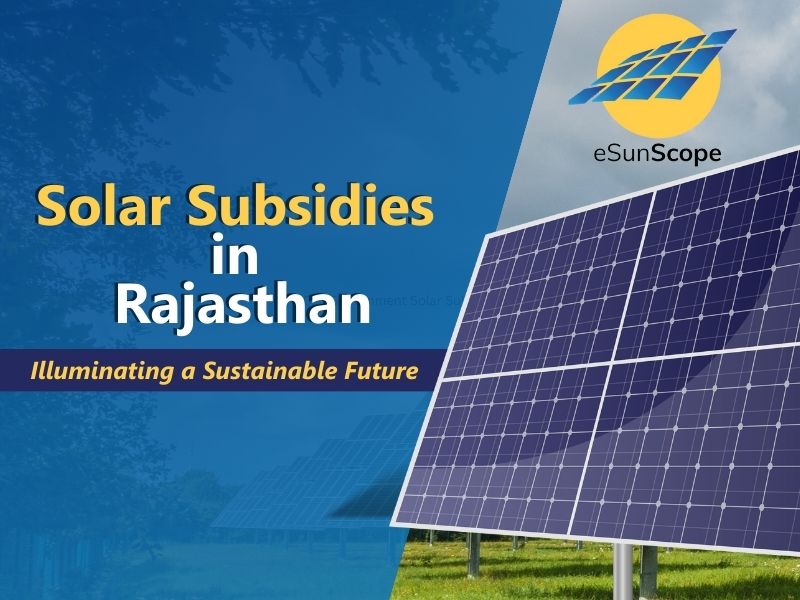

The global energy landscape is undergoing a significant transformation, driven by the urgent need to address climate change and secure sustainable energy sources. At the forefront of this shift is the rapid expansion of renewable energy, particularly solar power. This growth is not merely a technological advancement; it is significantly fuelled by strategic government interventions and supportive policies. This article explores the intricate relationship between Solar Energy Policies and Solar Energy Market Growth, highlighting how these policies are shaping the industry and accelerating its progress.
The increasing awareness of the environmental impact of fossil fuels has led to a global push for cleaner energy alternatives. This has resulted in substantial Renewable Energy Growth across various sectors, with solar energy emerging as a key player. However, the transition to solar energy is not solely a matter of technological innovation or consumer demand. Government policies play a crucial role in creating a favourable environment for solar energy adoption. These policies provide incentives, remove barriers, and establish frameworks that encourage investment, innovation, and widespread deployment of solar technologies.
Several policy mechanisms are employed worldwide to promote solar energy adoption. These can be broadly categorized as follows:
These Solar Energy Policies have a direct and measurable Solar Policy Impact on the market. By reducing financial barriers, creating stable markets, and fostering innovation, these policies have led to:
The impact of Solar Energy Policies can be seen in various regions around the world. For instance, Germany's early adoption of FITs played a crucial role in establishing a thriving solar industry in the country. Similarly, California's ambitious RPS has been a major driver of solar energy growth in the United States.
In India, government initiatives have significantly boosted solar deployment. States like Rajasthan, with its abundant sunshine, have become hubs for solar power generation. This has led to the emergence of specialized service providers, such as Top Solar Plant Services in Jaipur, catering to the growing demand for solar installations and maintenance.
To further illustrate the impact of policy, it's important to consider numerical data and market trends. For example, according to the International Energy Agency (IEA), global solar PV capacity has grown exponentially over the past decade, largely due to supportive policies. This growth is reflected in investment figures, with billions of dollars being poured into solar energy projects worldwide.
In terms of efficiency, advancements in solar panel technology have led to significant improvements in energy conversion rates. This translates to greater durability and long-term cost savings for consumers. For instance, modern solar panels can maintain high-performance levels for 25 years or more, reducing the need for replacements and maximizing return on investment. This focus on durability and cost savings enhances the attractiveness of solar energy, further driving Solar Energy Market Growth.
At eSunScope, we recognize the crucial role of Solar Energy Policies in driving the adoption of clean energy. We are committed to providing high-quality solar solutions that meet the needs of our customers and contribute to a sustainable future. We believe that by working together with policymakers, businesses, and consumers, we can accelerate the transition to a cleaner, more sustainable energy system.
Solar Energy Policies are not merely regulatory measures; they are powerful catalysts for Solar Energy Market Growth. By providing incentives, creating stable markets, and fostering innovation, these policies are driving the global transition to a cleaner energy future. The Solar Policy Impact is evident in increased investment, cost reductions, job creation, and significant environmental benefits. As technology continues to advance and policies become more supportive, the future of solar energy looks brighter than ever. The continued Renewable Energy Growth will depend on strong policy frameworks that encourage investment, innovation, and widespread deployment.
.jpeg)
Myth #1 • All Solar Systems Operate During Power Outages A grid-connected solar power system will lose power during ou...Read More
23 Sep 2023

In recent years, rooftop solar installations have seen a massive rise across India. With increasing electricity costs, growing ...Read More
04 Feb 2026

Harnessing the Power of the Sun: A Comprehensive Guide to Rooftop Solar Systems In the quest for sustainable and renewable ...Read More
19 Dec 2023

As Rajasthan continues to shine as a solar energy powerhouse in India, more households and businesses are considering switching...Read More
21 Apr 2025

With rising electricity costs and increasing focus on sustainability, solar energy has become a smart and future-ready choice f...Read More
15 Jan 2026

The demand for solar energy in India is growing rapidly as more households and businesses switch to clean, affordable, and reli...Read More
18 Nov 2025

In a world rapidly transitioning toward clean energy, eSunScope Solar is proud to lead the change as a trusted Solar company in...Read More
26 Jul 2025

How to Choose the Best Solar Plant Installer in Jodhpur? In the vibrant city of Jodhpur, where the sun shines brightly for ...Read More
09 Jan 2024

The sun, a constant energy source, offers a powerful way to reduce your electricity bills and contribute to a greener future. I...Read More
22 Jan 2025

Solar electricity is rapidly gaining popularity among homeowners as an eco-friendly and cost-effective alternative to tradition...Read More
29 Aug 2023

In a world influenced by global events and concerns about inflation, individuals are seeking prudent investment avenues. Is sol...Read More
29 Aug 2023

Are you ready to embrace a sustainable future and reduce your reliance on traditional energy sources? How to Switch to Solar En...Read More
19 Nov 2024

As Solar Energy adoption continues to rise across homes, industries, and commercial sectors, ensuring the safety and longevity ...Read More
06 Oct 2025

PM Surya Ghar Muft Bijli Yojana 2024: Illuminating India's Rooftops with 1 Crore Solar Residences In a monum...Read More
12 Feb 2024

Why Now Is the Best Time to Switch to Solar with eSunScope Solar Rajasthan has always been known as the land of the sun&mda...Read More
08 Dec 2025

Transitioning to solar energy has never been easier. At eSunScope Solar, a leading Solar company in Rajasthan, we guide you thr...Read More
18 Jul 2025

When it comes to Solar Energy, success begins long before the first panel is installed. At eSunScope Solar, a leading Solar Com...Read More
04 Aug 2025

Solar Subsidies in Rajasthan: Illuminating a Sustainable Future In Rajasthan, the glimmering sun often beats dow...Read More
10 Nov 2023

For decades, electricity has been a monthly expense, like groceries or fuel. But what if you could generate your own electricit...Read More
04 Sep 2025

The sun, a constant source of clean and abundant energy, has increasingly become a viable solution for powering homes. Harnessi...Read More
09 Jan 2025

eSunScope - The Best Solar Installation Company in Kota In the quest for sustainable and renewable energy sources, solar po...Read More
09 Feb 2024

Investing in a solar energy system is a significant step towards energy independence and environmental responsibility. However,...Read More
09 Jan 2025

Solar energy is a rapidly growing industry, and with it comes a variety of solar panel technologies. Understanding the differen...Read More
19 Nov 2024

In today's world, industries face increasing pressure to reduce their environmental impact while maintaining profitability....Read More
22 Jan 2025

The quest for clean, sustainable energy has propelled remarkable advancements in solar technology. From boosting efficiency to ...Read More
15 Feb 2025